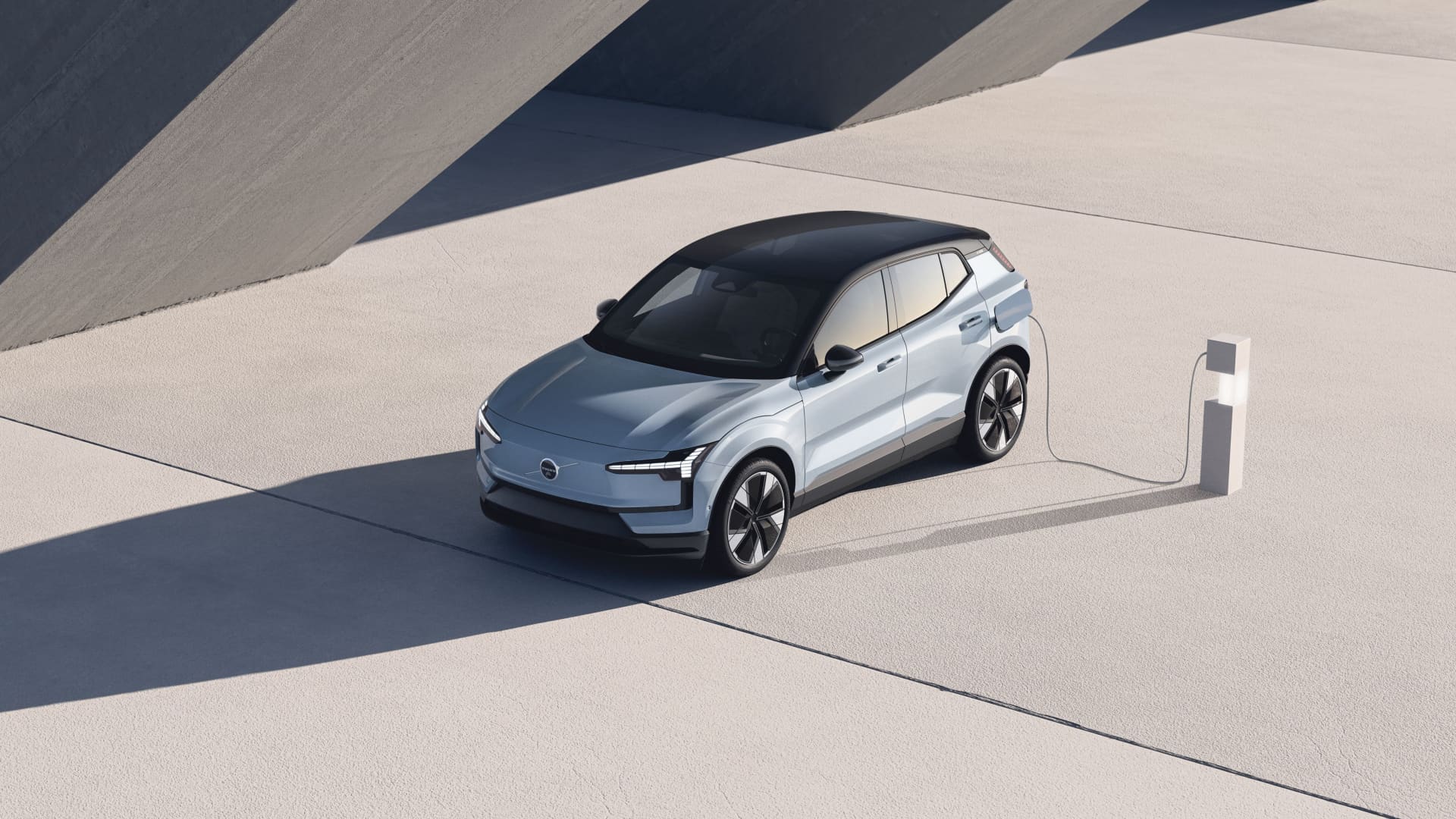
Volvo’s EX30, a small electric crossover SUV, is expected to arrive in the U.S. next year.
Courtesy: Volvo
Swedish automaker Volvo Cars said Tuesday that it has signed a deal with Tesla that will allow drivers of its electric vehicles to charge at about 12,000 Tesla charging stations in North America starting next year.
Under the deal, Volvo’s EVs will be equipped with Tesla-designed plugs, called the North American Charging Standard, starting in 2025.
Volvo’s deal with Tesla appears identical to deals struck in recent weeks by Ford Motor, General Motors and Rivian. While other rivals, including Hyundai and Chrysler parent Stellantis, have said they are considering similar moves, Volvo is the first European EV maker to formally commit to the NACS charging standard for its EVs sold in North America.
“We want to make life with an electric car as easy as possible,” said Volvo CEO Jim Rowan in a statement. “One major inhibitor to more people making the shift to electric driving — a key step in making transportation more sustainable — is access to easy and convenient charging infrastructure.”
Volvo said drivers of its EVs will be able to use Tesla’s Superchargers with an adapter starting in the first half of 2024. Volvo will add the locations of Tesla charging stations to its proprietary app at the same time.
Most non-Tesla EVs and charging stations in the U.S. use a rival plug design, the public-domain Combined Charging System standard. While Teslas can use CCS chargers with an adapter, currently, only Tesla EVs can use Tesla chargers.
Tesla’s NACS charging plug design was proprietary until late last year, when Tesla published the technical details of its system and said anyone could adopt the standard.
The shortcomings of CCS have been a growing concern for the Detroit automakers, all of which are investing billions in a wave of new EVs due over the next few years. Several studies have found that CCS charging networks have much lower reliability than Tesla’s network. In addition, the CCS fast-charging plug is larger and heavier than Tesla’s NACS plug, making it cumbersome for older or disabled drivers to use.
Several charging-related companies, including charging networks EVgo and ChargePoint, and manufacturers of EV chargers including ABB and Blink Charging, have said they have begun adding NACS plugs to their chargers or plan to do so in coming months.







